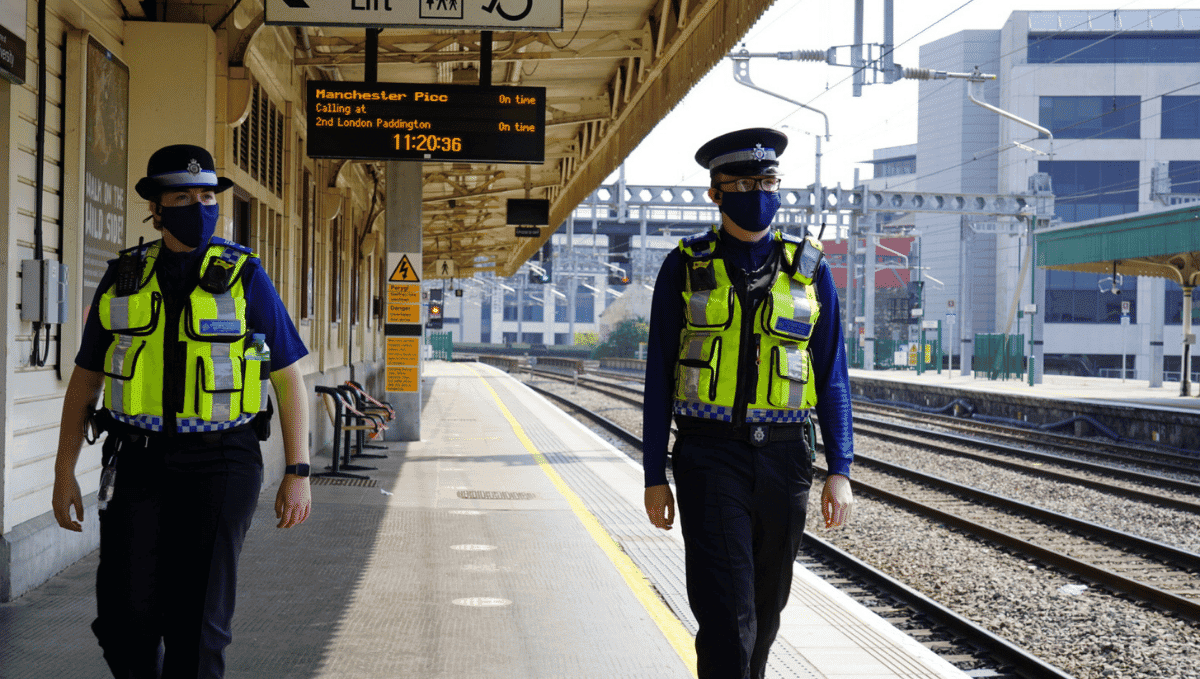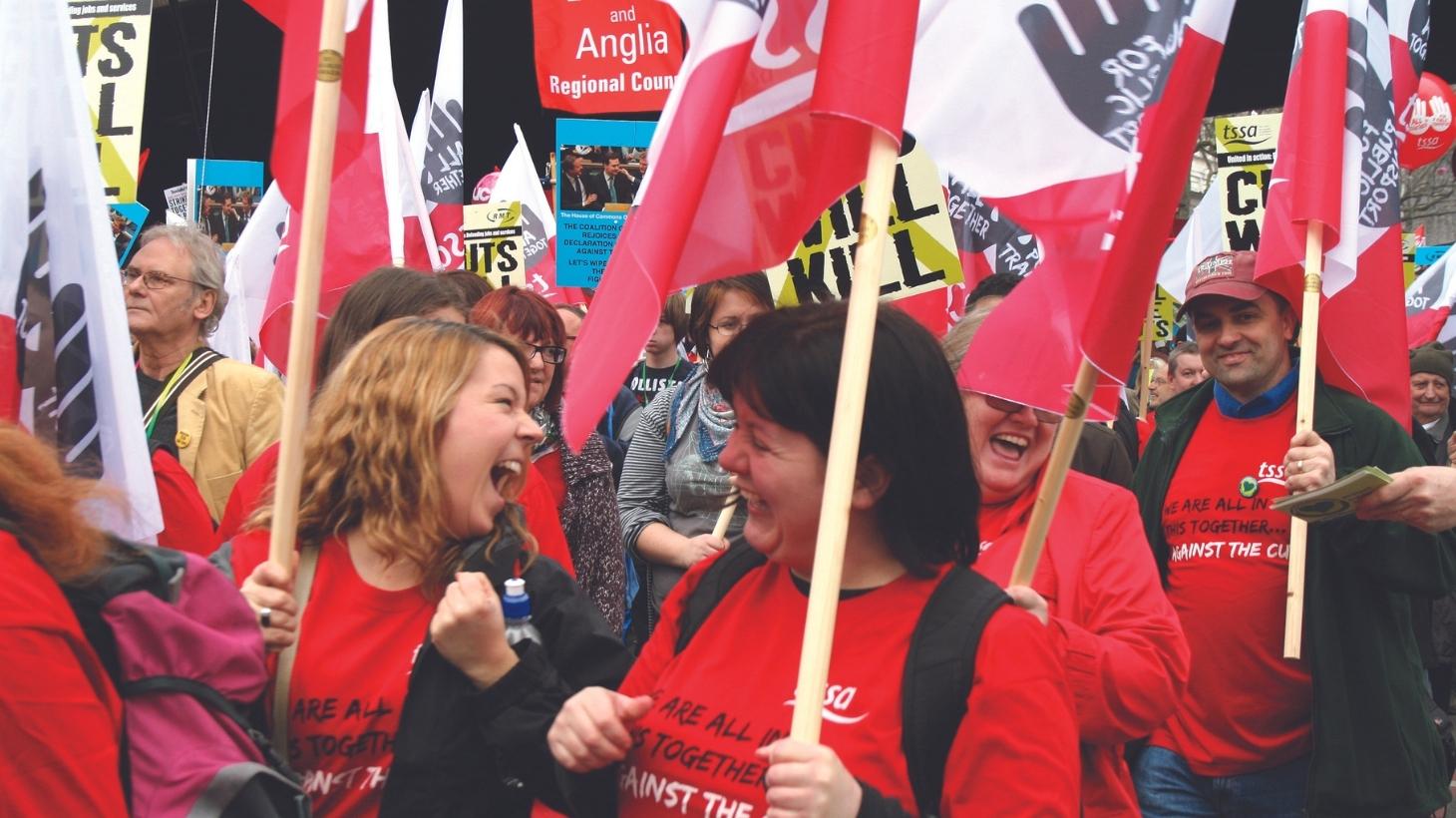NEWS.CATEGORY: Industrial
TSSA tells Transport Secretary - BTP cuts will cost lives

TSSA General Secretary, Maryam Eslamdoust, has written to Mark Harper demanding that he halt an instruction to the British Transport Police (BTP) to make 'catastrophic’ savings.
The leader of the rail union took the step of writing to the Transport Secretary to intervene in a directive given to the BTP by its governing body, the British Transport Police Authority (BTPA), to make five million pounds worth of savings by the end of the financial year.
TSSA pointed out that the only way to achieve such a drastic figure would be through recruitment freezes, leaving BTP short by 274 rail safety specialists. Police officers, police community support officers, and civilian staff are specially trained to deal with fare evasion, theft and suicide attempts to keep trains and stations safer for all.
In her letter, Eslamdoust points out ‘There is an alternative. The British Transport Police are funded by charging the railway companies for their services. The most beneficial solution for BTP would be to increase charges to the rail industry.’
Speaking in her capacity as the general secretary of the trade union representing civilian staff including PCSOs in BTP, Maryam Eslamdoust implored the Transport Secretary to “instruct the Department for Transport to allow BTP to increase their charges to the rail industry” to support the BTP to “keep us safe, to save lives and prevent crime.”
The full text of Maryam Eslamdoust’s letter to Mark Harper is as follows,
Dear Mr Harper,
I am utterly appalled to learn that the British Transport Police (BTP) have been instructed by the British Transport Police Authority (BTPA) to make five million pounds worth of savings by the end of this financial year.
These savings can only be achieved by recruitment freezes, which will leave BTP short by 274 members of staff, including Police Officers, PCSOs and vital civilian staff by April 2024 – a significant number against BTP’s existing headcount of five thousand.
This would have a catastrophic impact on BTP’s ability to carry out their duties. A number of police posts would become untenable. Their ability to respond, quickly, to incidents would be impaired. Critical police staff functions could become unviable, and some BTP stations would need to close. To recover the workforce strength they have today would take 27 months – a dangerously long time for any police force to be understaffed.
As you are well aware we are not under normal circumstances. The Government are seeking substantial changes to the staffing of the railway companies. Changes which we have no doubt will increase the workload on the officers and staff at BTP substantially. We were astounded to learn that the Rail Delivery Group didn’t see fit to consult with BTP prior to those changes being made public, whilst this has been rectified and following BTP’s response they will have sight of risk assessments staff within the TOCs are still concerned, concerns that our members at BTP share.
Hopefully the talks with the RDG and the TOC’s will result in an agreement, although we do believe the findings of the Transport Committee are well founded, too far too quick. Wherever we end up in those talks we do see the risk increasing for passengers and staff, and a number of issues where BTP support is required, fare evasion, theft, incidents in stations and onboard, along with incidents track side such as suicide will grow substantially.
The impact this would have cannot be understated. BTP officers and PCSOs carry out vital work on the railways, making trains and stations alike safer for us all. They are specialists, trained in rail safety, able to respond to trespassers on the line and prevent suicides. At a time when the train operating companies are planning to reduce staffing in ticket offices, and the Metropolitan Police are choosing not to attend mental health incidents, cutting BTP officers will mean more deaths on the lines.
There is an alternative. The British Transport Police are funded by charging the railway companies for their services. The most beneficial solution for BTP would be to increase charges to the rail industry, as the cost of policing under the RTSA (2003).
As the general secretary of the TSSA, the trade union representing civilian staff including PCSOs in BTP, I am therefore writing to ask that you instruct the Department for Transport, to allow BTP to increase their charges to the rail industry.
We all want the railways to operate at their best for passengers and staff alike. We need the BTP to keep us safe, to save lives and prevent crime.
Yours sincerely,
Maryam Eslamdoust
General Secretary

